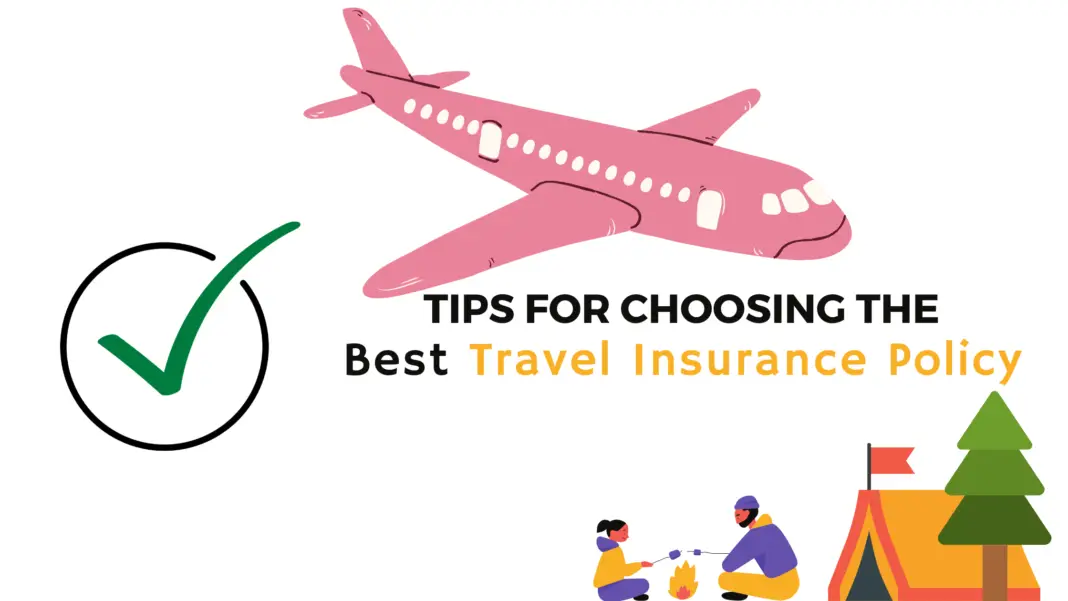“This post may contain affiliate links, if you click a link we may earn a commission if you purchase from that merchant.”
Never underestimate the value of a travel insurance policy, whether you’re traveling inside the country or abroad. Your life or medical insurance policy will protect you when you’re at home from a range of perils and risks. There are only a few life and medical insurance plans that protect people who travel abroad.
Before buying any policy, it is best to determine one’s needs and requirements before narrowing down your search to choose any insurance policy. Aside from the budget and coverage offered, there are a number of factors that differentiate one policy from the other. What is appropriate for one person may not be appropriate for a family planning a trip or holiday. As a result, time must be invested in making an educated decision about which policy better meets one’s needs.
To aid you in your search, we’ve put together a quick guide to help you choose the best travel insurance policy for your next trip.
Table of Contents
Check with Your Existing Insurance Provider
After you’ve booked your flight, the next move should be to find a good travel insurance policy to protect you. It’s a good idea to start by contacting your current insurance agent. Some insurance firms and banks provide free travel insurance to their customers who already have a policy with them.
Duration of Policy
You can choose between a single trip and a multi-trip policy depending on your travel plans. A single trip policy covers you for just one trip, which may be an annual holiday. A multi-trip strategy, on the other hand, is better for travelers who fly often during the year.
The advantage of purchasing a multi-trip policy is that it not only saves you time by eliminating the need to purchase a separate policy for each trip, but it also saves you money. Check how many days of coverage are included with either of the policies.
Consider the risk of having to prolong your trip when choosing a travel insurance policy. As a result, choose a policy with a duration that is slightly longer than the duration of your journey. Alternatively, if your travel is extended and you need extra coverage for a short period, you may choose a package that includes a policy extension.
Destination Cover
Though it might seem self-evident, make sure that the policy you’re about to purchase includes the destination you’re planning to visit. This is because different policies have different meanings, and policies can cover the whole world or just a small geographical area.
Check the clauses for additional details and sub-limits in the case of a global policy. Furthermore, premiums may vary depending on where you travel. Travel to countries with a slightly higher risk of terrorism may result in higher premiums and stricter restrictions. This feature should be compared between the policies you’re considering.
Type of Policy – Family / Couple / Individual
Purchasing a travel insurance policy for a couple or a family is less expensive than purchasing one for each person. Choose a policy that covers all members of your family, including children.
Medical Cover
Medical coverage is the most important aspect of any travel insurance policy, given the rising costs of medical care around the world, especially in the United States and Europe. If you’re resting in your hotel or relaxing on the beach, a medical emergency could occur at any time.
A good travel insurance policy will protect you financially if you have an unexpected medical bill when traveling abroad. Read the details of the clauses contained under the medical cover section before deciding on a policy.
Luggage / Personal Belongings Cover
What happens if you arrive at your destination but your luggage does not?
This isn’t an uncommon phenomenon, and thousands of travelers around the world find themselves in this stressful situation. With this in mind, a travel insurance policy should protect you in the event of luggage loss. Different policies now have different words for luggage loss.
Cover For Electronics
Electronic valuables such as cell phones, tablets, and cameras are typically not covered by most basic travel insurance policies. Read the policy carefully and inquire with the individual in charge of whether certain things will be compensated if they are lost.
Missed Flight Cover
A travel insurance policy would most likely not protect you if you miss a flight. If you didn’t leave in time for your flight, the insurer has no obligation to compensate you for the cost of the ticket.
If you have to leave the country you’re vacationing in due to a political threat or some other excuse covered by your policy, you’ll almost certainly be reimbursed for your travel expenses. Travel insurance plans are primarily intended to protect you from incidents that you could not possibly prevent or protect yourself from.
Claim Limit
Any cover provided by a travel insurance policy will have specific limits. This ensures that in the case of a medical emergency, the loss of a passport, wallet, or electronic device, the insurance will only protect you (for each claim) up to a predetermined limit.
For example, your policies can include coverage for lost baggage up to USD 1000. The insurer is only liable to pay you USD 1000 in this situation. Hospital coverage checked luggage coverage, and loss of wallet/passport coverage all have a cap on how much compensation or reimbursement can be given. So it is better to read all the details before you choose any travel insurance policy.
Holiday / Trip Activities
You won’t be alone in your hotel room for the duration of your vacation or holiday. Depending on the specialty or attraction of the location you’re visiting, you’ll be involved in events. A standard travel insurance policy can cover a variety of activities. If you get hurt while riding your bike around town or break a bone while playing beach volleyball, your insurance is most likely to pay for your medical bills. However, before purchasing a policy, read the fine print to ensure that it includes the activities you have scheduled for your journey.
Bottom Line
It is always best to buy travel insurance before you leave for your vacations. Putting money into the right travel insurance policy will pay off in a variety of ways. Before choosing an insurance policy make sure it covers all the necessary parts of your travel.


































